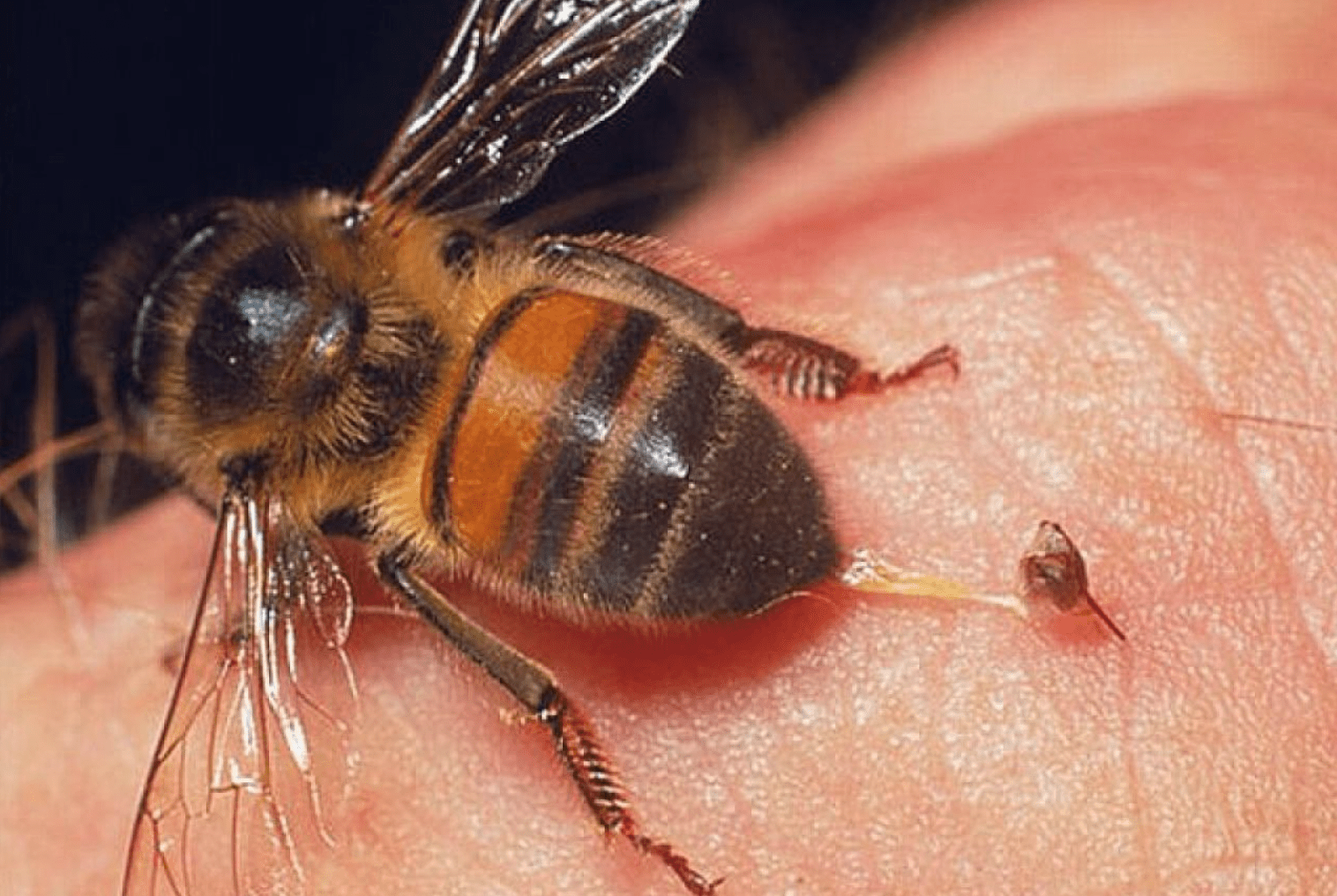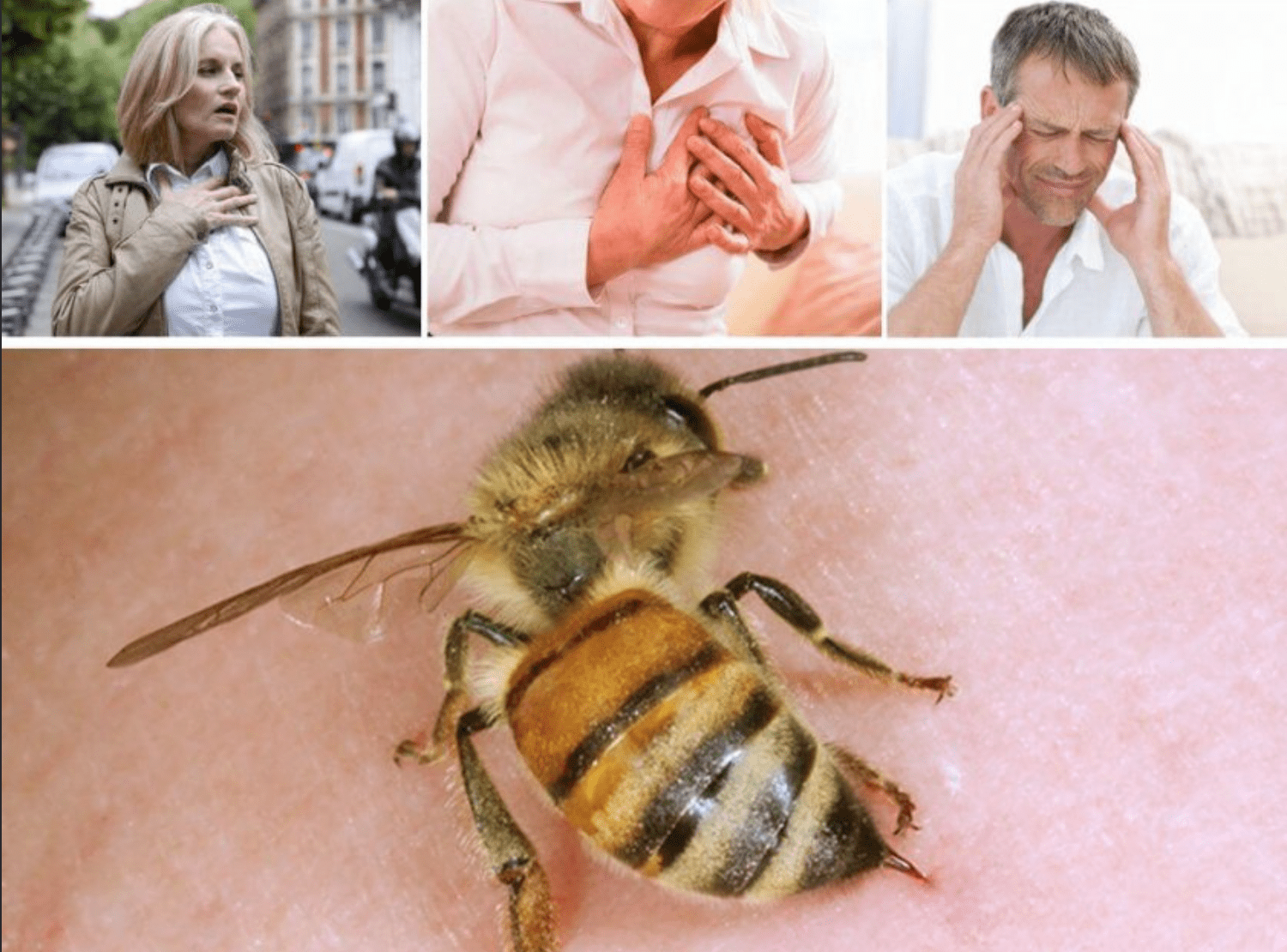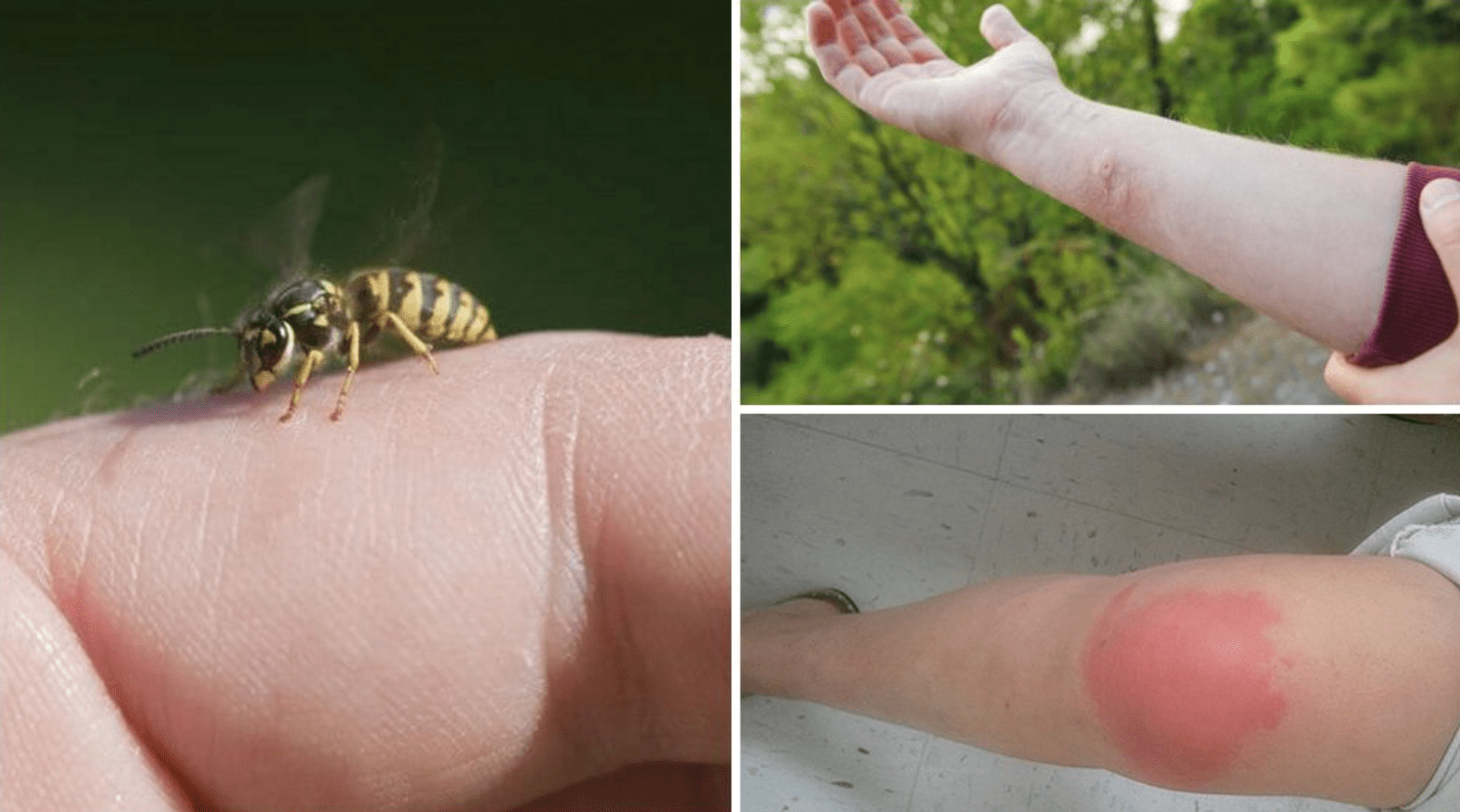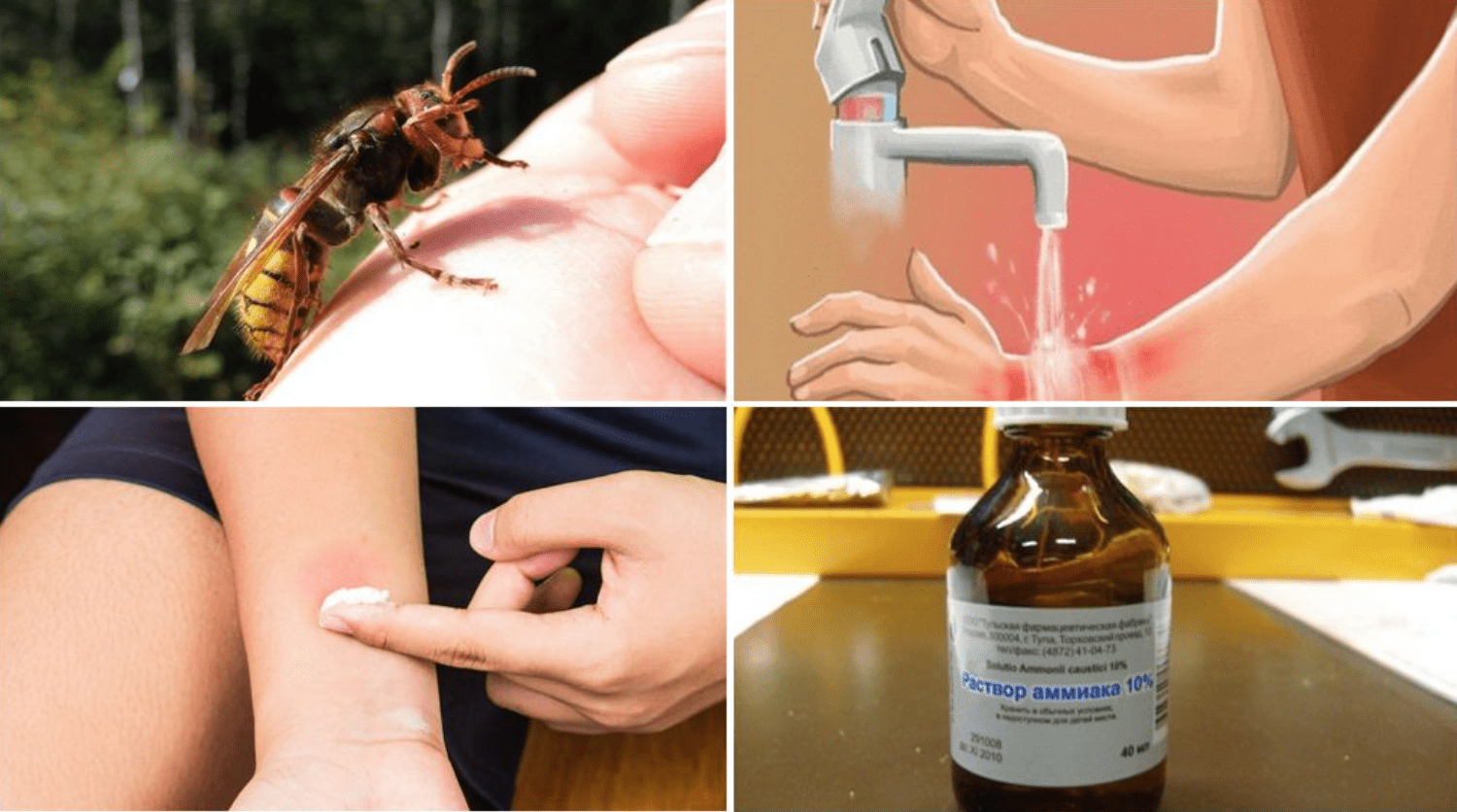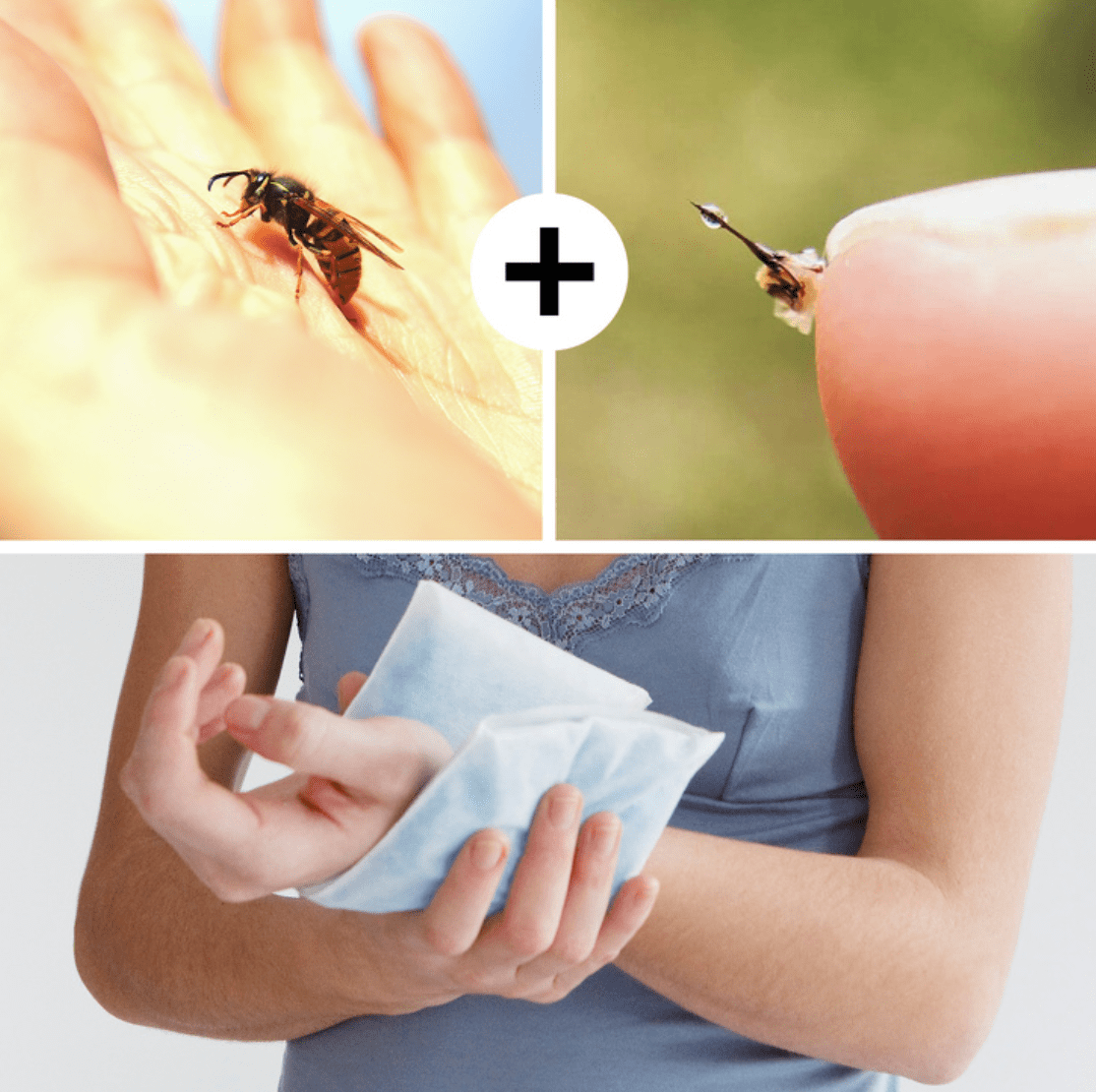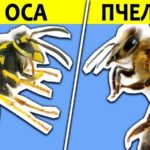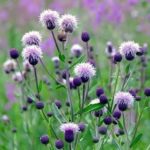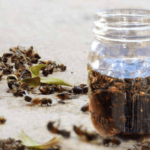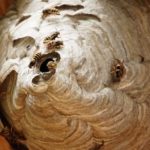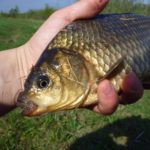Bee stings are quite unpleasant. They are accompanied by severe pain and can lead to swelling and swelling. If a person is allergic to these insects, their bites can cause dangerous health consequences and even be fatal. If this happens, it is important to promptly provide first aid to the victim and, if necessary, take him to a medical facility.
Why are bee stings dangerous?
If a person is stung by a bee, this can pose a real danger to his health and life. In most cases, swelling appears at the affected area, which looks like a lump.After a few hours it subsides. However, for some people, such injuries provoke serious consequences.
The most severe reaction after a bee or wasp sting is anaphylactic shock. This condition is accompanied by the following symptoms:
- severe swelling of the neck and larynx;
- breathing problems - it becomes more frequent, wheezing appears;
- a sharp decrease in pressure, thread-like pulse;
- the appearance of dizziness;
- fainting state.
Bites to the face are especially dangerous. Even in the absence of allergies, a person may experience severe swelling that does not subside for a long time. Impacts are transferred even worse to the tongue. It can swell greatly and block the supply of oxygen.
In such a situation, urgent medical attention is required. Multiple bee stings pose a great danger. Complications are also highly likely to occur in the child.
Signs of a bite
There are several main signs that a person has been bitten by a bee:
- severe burning pain;
- redness of the skin and the appearance of a white dot in the central part;
- rapid appearance of edema.
Most often, everything is limited to these symptoms. However, some people experience allergy symptoms. In this case, the following manifestations are observed:
- severe swelling in the bite area, which rapidly increases;
- severe itching and rashes all over the body;
- breathing problems resembling an asthma attack;
- nausea and vomiting.
Classification
Bee stings can be single or multiple. In the first case, sharp and burning pain occurs in the affected area. You can also see that the area is swollen and red. Multiple bites are considered more dangerous. They pose a real threat even to people who do not have allergies.
Also, stings are classified depending on the type of bee.Thus, people are bitten by both domestic and wild insects. It is worth noting that in the second case the risk of developing allergies is significantly higher.
First aid
If a person has been bitten by bees, he needs timely assistance. It is recommended to do the following:
- Carefully inspect the bite area. There should be a sting in the center.
- Be sure to remove the sting. This can be done with your fingernails or tweezers.
- Treat the damaged area with an antiseptic at home.
- Apply cold to the damaged area. It is important to use only clean objects to avoid introducing infection into the wound.
- Apply a soda compress to the damaged area and hold for 15 minutes. To prepare the solution, you need to mix 1 small spoon of baking soda with a glass of water.
- Apply a topical antihistamine to the affected area. For this you can use “Fenistil” or “Psilo-balm”.
- Take an antihistamine. This must be done if there is a violent reaction in the body. Antihistamines are also recommended for bites to the head.
There are also many folk remedies that can be used as first aid to the victim. The most effective products include the following:
- Parsley – has anti-inflammatory properties. To use this plant, you need to pour boiling water over the green leaves and put them in hot water for 5 minutes. After this, you should apply warm leaves to the bite site.
- Aloe – helps cope with swelling, itching and redness. To eliminate unpleasant symptoms, you should use compresses with aloe decoction or apply leaves to the bite area.
- Onion – has bactericidal properties, eliminates hyperemia and swelling. To get rid of unpleasant symptoms, it is recommended to apply compresses with onions.
To reduce the concentration of the poison and speed up its elimination, you need to give the victim a lot to drink. Plain water, tea, compote are suitable for this. Usually, these measures are enough to prevent the negative consequences of a bite.
When providing first aid, it is important to take into account the location of the lesion. If you are bitten on the neck or head, there is a higher risk of developing an allergy. If a bee bites you on the leg, the likelihood of dangerous consequences is much lower. The same applies to bites on a finger on the hand.
Further treatment
Most often, after providing first aid, nothing needs to be done. Sometimes it is necessary to smear the affected area with antihistamines. This will help relieve swelling. It is important to consider that 2% of people experience an allergic reaction to bites. They can lead to negative consequences, including death. In such a situation, you need to consult a doctor.
Urgent medical care is needed in the following cases:
- Multiple bites. In such a situation, a high concentration of bee venom can cause negative consequences, including respiratory arrest.
- Bites to the eyes, mouth area, neck. In the first case, there is a risk of developing serious inflammation of the visual organ. In this case, damage to the neck and oral cavity can provoke suffocation due to swelling of the tissues of the respiratory tract.
- Allergic reactions. Dangerous symptoms include shortness of breath, sore or cramping throat, and a feeling of tightness in the chest. There is also a risk of massive swelling, rashes, nausea and vomiting. Some people experience breathing problems and fainting.
In such situations, you need to call an ambulance or take the victim to a medical facility yourself. A doctor's consultation is also required if severe swelling and redness in the affected area persists for 3 days. In such a situation, the specialist will prescribe medications that will eliminate these symptoms. An antihistamine usually helps in such cases.
Prevention
To avoid bee stings, you need to follow simple recommendations:
- If a bee flies very close, you should not try to drive it away. It is important to remain calm and not make sudden movements until the insect flies away.
- Experts do not advise being afraid of bees. Many scientists claim that insects sense how adrenaline is produced.
- Don't wear bright clothes that attract bees.
- It is not recommended to use perfumes and deodorants that have strong odors. They attract insects.
- You should not walk barefoot on the grass.
Bee stings can pose a real danger to human health and life. Therefore, it is important to provide first aid to the victim in a timely manner. If allergy symptoms appear, a person must be immediately taken to a medical facility.

